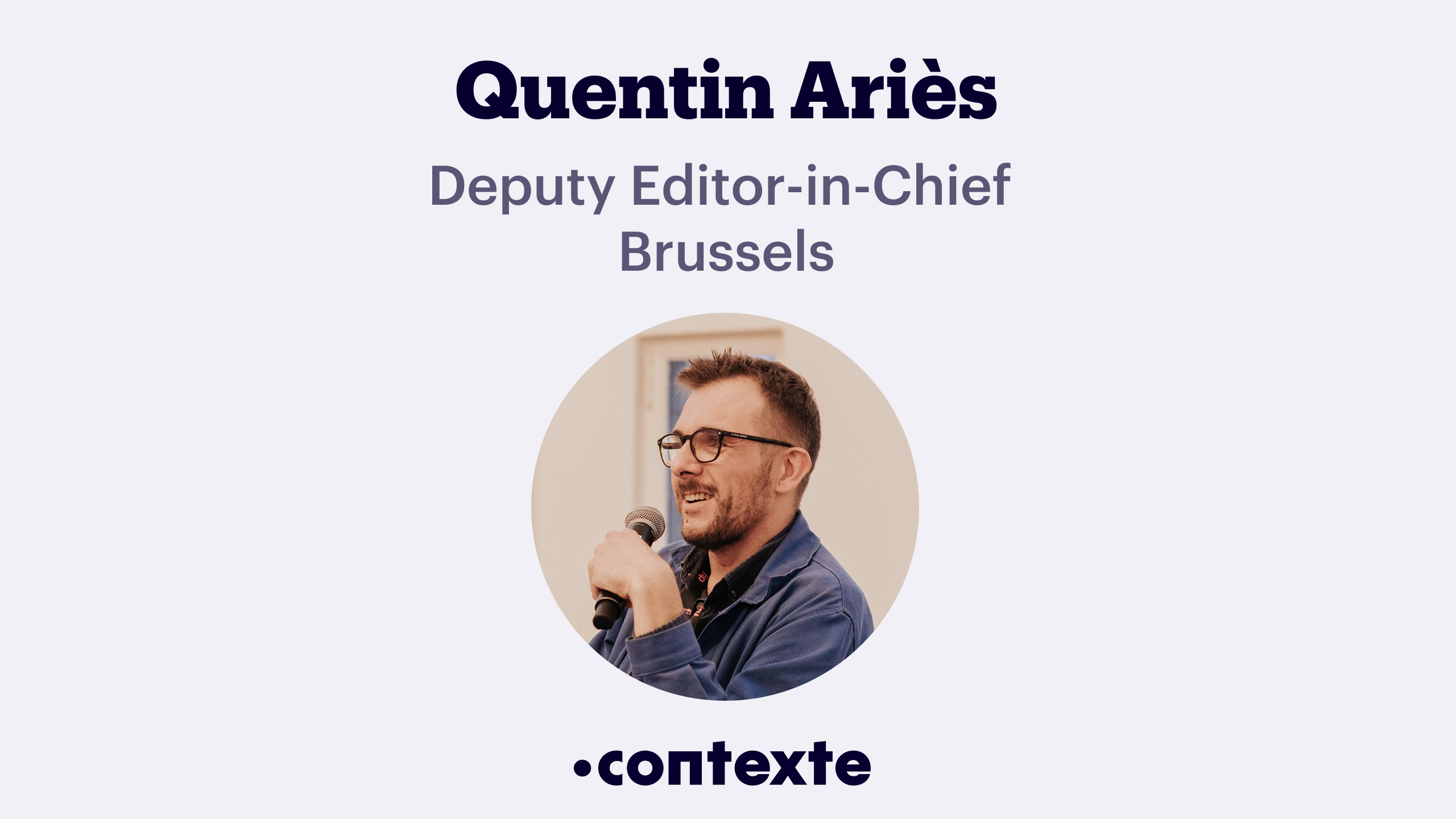Our news
09
09
2025
[Press release] Quentin Ariès joins Contexte as Deputy Editor-in-Chief of Brussels bureau

by

by

by

Contexte is pleased to announce the appointment of Quentin Ariès as Deputy Editor-in-Chief. He joins the Brussels bureau, which now numbers 24 journalists.
A graduate of Sciences Po Grenoble and the University of Kent, Ariès has developed a deep understanding of European politics during his 11 years as a journalist based in the EU capital. He has contributed to The Washington Post, Mediapart, News Tank and Politico. From 2018 to 2022, he was a regular freelance correspondent for Contexte, covering Brexit.
This appointment comes amid the rapid growth of Contexte’s Brussels operations. Earlier this year, Contexte launched Energy, its first English-language section dedicated to European public affairs, and a second section is already in development. The team has grown from 16 journalists at the start of 2025 to 24 this autumn, and will surpass the 30-mark in 2026.
“To support this expansion, we are adapting the newsroom’s governance with the creation of this new deputy editor-in-chief position, entrusted to Quentin Ariès,” says Jean-Sébastien Lefebvre, Contexte’s Brussels Editor-in-Chief. “His experience as editor-in-chief of the trans-European media network Sphera will be valuable in co-ordinating our multicultural newsroom, made up of French- and English-speaking journalists from across Europe.”
As Europe faces decisive choices — from the transformation of transatlantic relations and budget negotiations to the Commission’s competitiveness agenda, all against a backdrop of political tensions and the war in Ukraine — Contexte’s journalists remain a trusted reference point. Their recent coverage of the 2028–2034 multiannual budget and the associated sectoral reforms illustrates Contexte’s approach: obtaining exclusive information, offering in-depth analysis and conducting rigorous long-term monitoring.
“The arrival of Quentin Ariès will allow us to continue along the path that has defined our success in Brussels for the past 12 years,” Lefebvre says. “It will help us maintain a strong link between Paris and Brussels — which is essential for our French sections –– and enable us to uphold editorial excellence while expanding in Europe, thanks to ongoing training, the anticipation of major European challenges and the collective work of our teams.”
,



